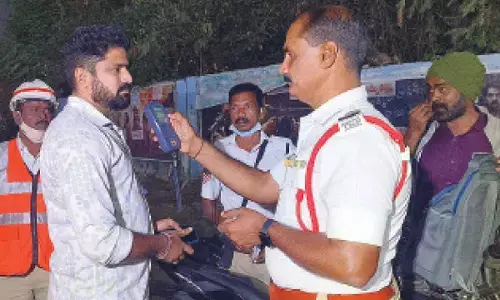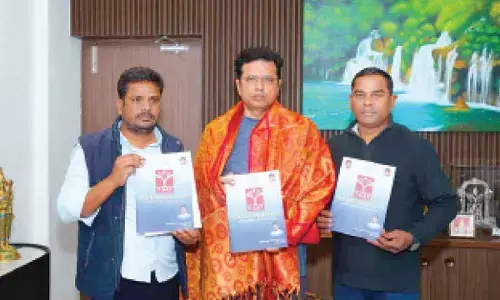Corporate espionage

Government offices the world over are poorly guarded, as brought out by Wiki Leaks and numerous espionage scandals – with many more to come – given the nature of information and the way it is stored.
Government offices the world over are poorly guarded, as brought out by Wiki Leaks and numerous espionage scandals – with many more to come – given the nature of information and the way it is stored. The Government of India has a fairly dubious record on this. One does not have much information coming on the way state governments maintain their security.
In a democracy, they all have to reach out to the people, transparently, yet holding back information of sensitive nature. This contradicts the Right to Information and other relevant laws that require the government to part with information. But then, we do live in a world full of contradictions.
While guarding information, governments everywhere tend to shoot the messenger – blocking media access, rather than plugging loopholes in their working.
The corporate, industrial and commercial espionage in India is one of the worst-kept secrets of successive governments. Normally, it gets revealed when media or investigations abroad stumbles upon it, or loser(s) in a lucrative contract cause media leaks to ‘avenge’ the loss. The Bofors scandal was the result of this twin phenomenon. The setback it caused, not just to the politicians and officials allegedly involved, but to the decision-making process has been tremendous and echoes in corridors of power to this day. Bofors was all about one per cent of the contract amount being paid to “middleman.” Such payments go up to five per cent in commercial deals, involving huge amounts. Payment of commission may be legal in one country and illegal in another. Laws have been changed in most developed countries and India, still having archaic laws, needs to catch up. Saying this does not mean condoning espionage – no government can do that. By available reports, the Modi government has been quick in acting. How it follows up, from the Delhi Police right to the top, in terms of investigation, arrests and prosecution is a long process that would need watching. The role of media and civil society is crucial here.
The just-surfaced scandal points to the role of business houses. Not that there was no espionage before. Now the access to decision makers and decision-making process is more direct with the entry of billionaires in legislatures. It is tempting to think that graft and espionage are on the rise after economic liberalisation.
The private bribe-giver is not liable under the archaic Official Secrets Act, but the official is. Denials by the corporate bodies named so far and the speed with which some of them have distanced themselves by sacking the arrested employees make things more difficult.
Only the tip of the proverbial iceberg has surfaced. That it has happened at the headquarters of the Petroleum Ministry, housed at Shastri Bhavan – opposition and media reports have called it “Shastrigatge – sadly, even if symbolically, tarnishes the fair name of a former Prime Minister whose second name was honesty.
















